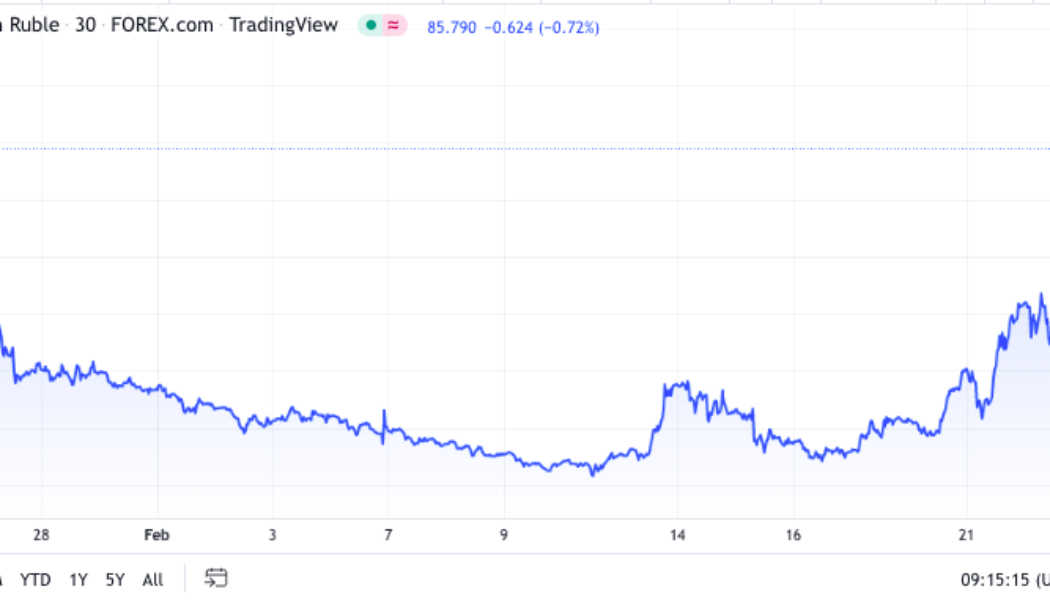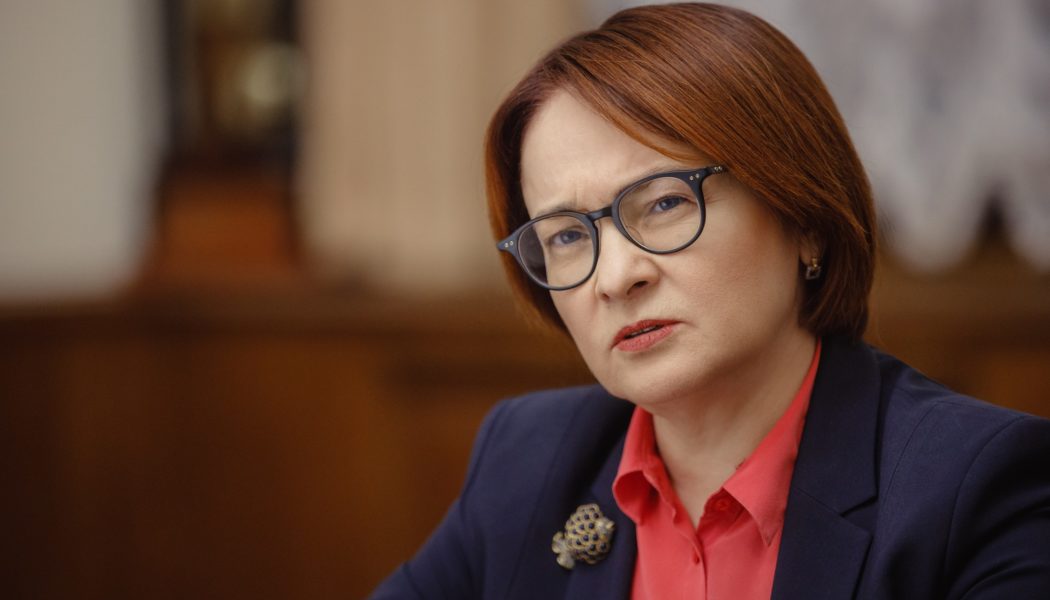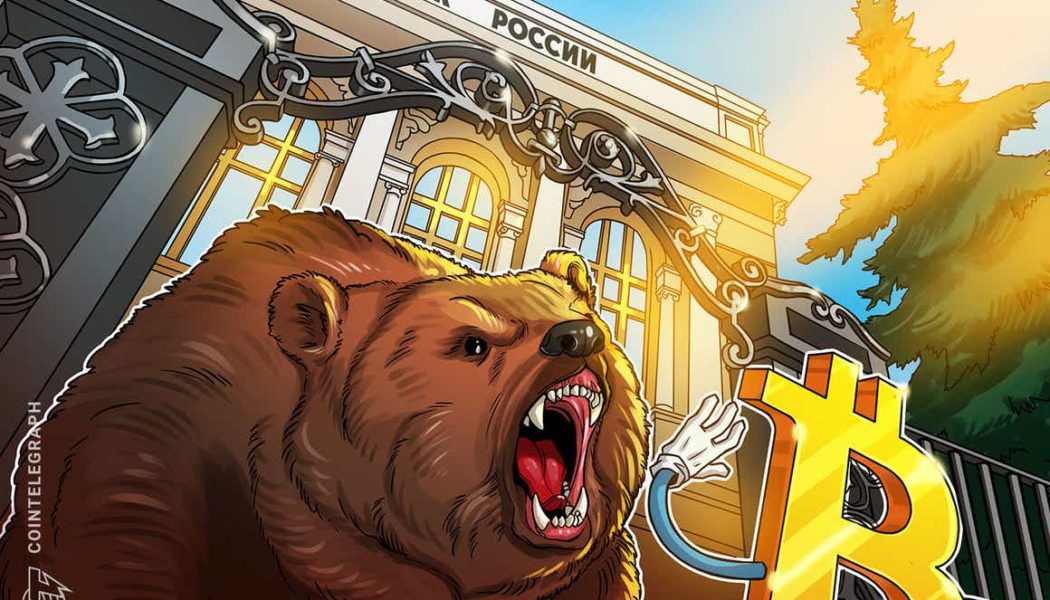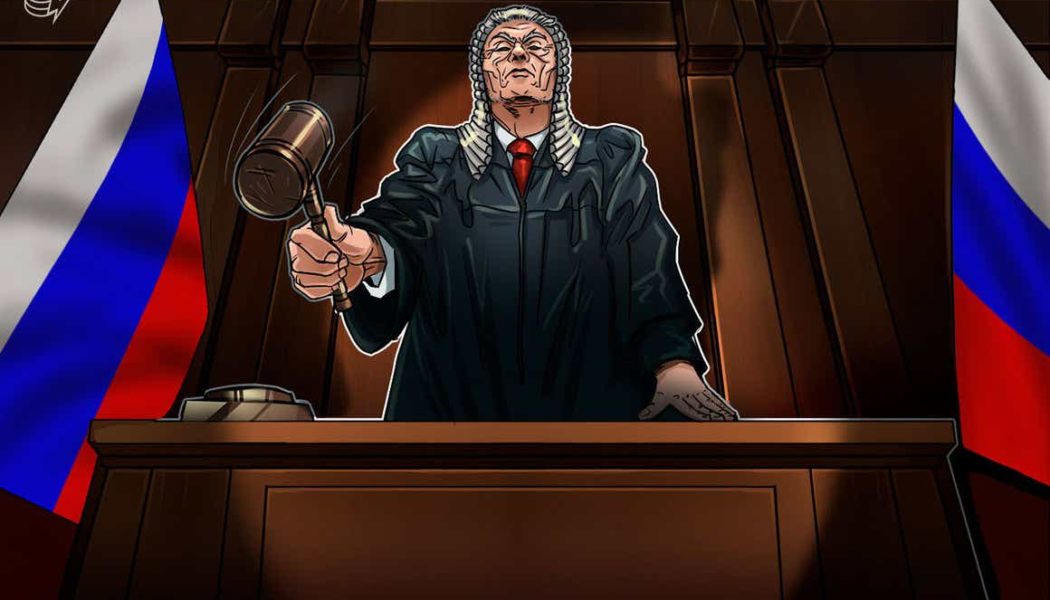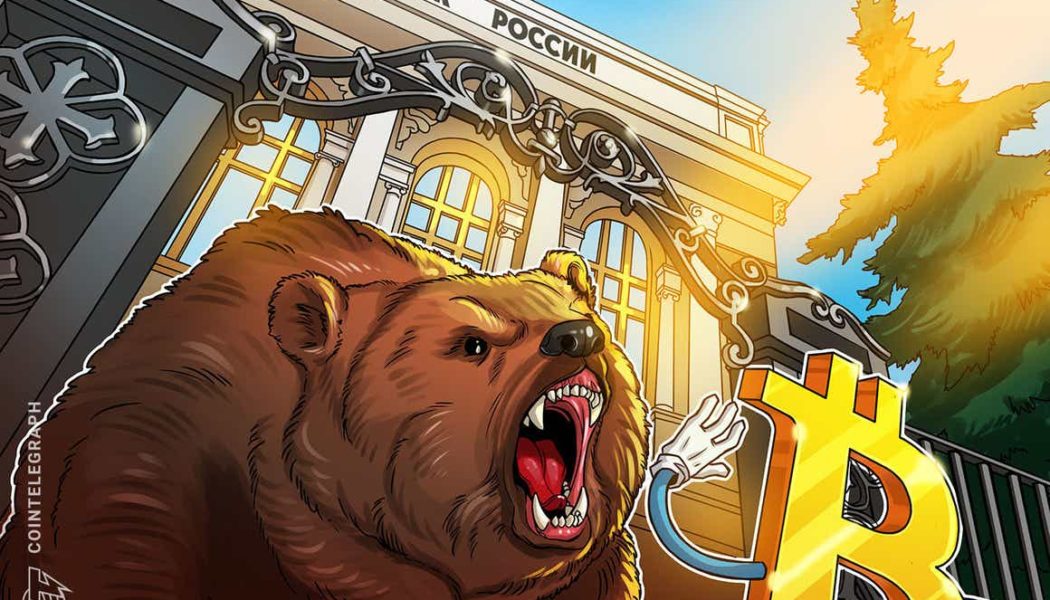Bank of Russia
Russia to seize retail deposits if sanctions go too far, official warns
In the event of harsh Western sanctions as Russian forces invade Ukraine, retail customers could risk losing their savings. Russians’ savings could be confiscated in response to sanctions against the country, according to Nikolai Arefiev, a member of the country’s Communist Party and vice-chairman of the Duma’s committee on economic policy. The Russian government can potentially seize about 60 trillion rubles ($750 billion) worth of people’s deposits should Western nations decide to block all of Russia’s foreign funds, Arefiev said in an interview with the local news agency News.ru on Monday. “If all the foreign funds are blocked, the government will have no other choice but to seize all the deposits of the population, or 60 trillion rubles in order to solve the situation,” the official st...
Russia’s Finance Ministry introduces digital currency bill, brushes off Central Bank’s objections
Russia’s Ministry of Finance has upped the stakes in its drawn-out showdown against the country’s Central Bank by formally introducing a bill that proposes to regulate digital assets rather than banning them. On Feb. 21, the Ministry introduced a draft of the federal law “On digital currency” to the government. This stage of the legislative process precedes the bill’s introduction to the parliament for consideration. The agency cited the “formation of a legal marketplace for digital currencies, along with determining rules for their circulation and range of participants” as the rationale for the initiative. Emphasizing that the bill does not seek to endow digital currencies with legal tender status, its authors define cryptocurrencies as an investment vehicle. The bill proposes a licensing...
Clarity pushed back: Russian government fails to forge a consolidated stance on crypto regulation
On Feb. 18, the Russian Ministry of Finance kicked off public consultations on the rules of cryptocurrency issuance and transactions. While a welcome development, it is less than the country’s crypto space had expected to get. Earlier in the week, the government announced that by Feb. 18, a bill containing the finance ministry and central bank’s consolidated position on crypto regulation would be drafted. Updated estimates suggest that it will take at least another month for draft legislation to see the light. The main reason for the delay appears to be the central bank’s renewed resistance, which just several days ago seemed to have been overcome. Here is a roundup of the latest twists in this rocky ride. Round 1: Central bank’s ban proposal On Jan. 20, the Central Bank of Russia (CBR) is...
Russian gov’t and central bank agree to treat Bitcoin as currency
The government and central bank in Russia have reached an agreement on how to regulate cryptocurrencies, according to a Tuesday announcement. Russia’s government and central bank are now working on a draft law that will define crypto as an “analogue of currencies” rather than digital financial assets, set to be launched on Feb. 18. Cryptocurrencies would function in the legal industry only if they have complete identification through the banking system or licensed intermediaries. Kommersant notes that Bitcoin (BTC) transactions and possession of cryptocurrency in the Russian Federation are not prohibited; however, they must be done through a “digital currency exchange organizer” (a bank) or a peer-to-peer exchange licensed in the country. The report also highl...
Simple math says Russia could collect up to $13B in crypto tax each year
The Russian government is expected to collect up to 1 trillion rubles ($13 billion) in crypto tax each year, as per an estimation by the authorities. The Bell, a local Russian publication, reportedly got its hands on the government analytic note that estimated the yearly tax revenue. According to the letter’s authors, Russians hold 12% or nearly $214 billion in crypto. The number of users on foreign exchanges is estimated to be about 10 million, added with the significant number of over-the-counter (OTC) crypto trades. The government agency believes even the most straightforward tax imposition can generate anywhere from 146 billion rubles to 1 trillion in crypto tax revenue. The note suggests two possible taxation methods: One for the crypto platforms such as exchanges, int...
Russia houses $200B worth of crypto, Kremlin estimates
Russian citizens reportedly own 16.5 trillion rubles ($214 billion) worth of cryptocurrencies, according to government estimates. A Bloomberg report noted that Russians own about 12% of the total global crypto holdings. The crypto holdings estimates were calculated by analyzing IP addresses of some of the most significant crypto exchange users in the country along with a few other data points, said two people working with Kremlin. The crypto holdings analysis of Russian citizens is being carried out to get an overview of the crypto market and formulate new regulations. The proposals are yet to be finalized. The estimates are believed to be on the lower side, given crypto regulations are not yet clear in the country and many users prefer to use anonymous tools to carry out their transa...
Law Decoded: Russia flounders, America competes, IMF keeps fuming, Jan. 24–31
One of the most fascinating implications of the collision between traditional political institutions and the crypto space is how it can reveal the glaring lack of cohesion within power systems that otherwise look monolithic. Digital assets reside in a parallel policy dimension where neither a centralized consensus nor a clear rulebook exists, leading to a surprising variety of voices and opinions emerging in the absence of a politically coordinated course. Last week, a rare lively policy debate broke out in Russia in the aftermath of its central bank’s attempt to promote a hardline stance on crypto. One does not often see such a public interagency disagreement on substantive issues. Below is the concise version of the latest “Law Decoded” newsletter. For the full breakdown of policy develo...
Central bank overkill: Russia’s proposed crypto ban and why everyone’s against it
On Jan. 20, the Central Bank of Russia (CBR) issued a report summarizing its position on digital assets and proposing a ban on any crypto trading and mining operations in the country. Although the CBR’s strict position on the matter was never a secret, such a bold statement triggered waves of fear, uncertainty, and doubt — otherwise known as FUD — across the board, given Russians’ high rates of involvement in the global digital assets market. Yet, there are reasons to doubt the ultimate effectiveness of the CBR’s hardline bidding, both in terms of its enforceability and its acceptance by other power centers, including legislators and siloviki (securocrats). The picture gets even more complicated for the central bank, as a high-ranking official within another major center of economic ...
Binance taps former central bank exec to push compliance in CIS and Russia
Binance, the world’s largest cryptocurrency exchange, is putting more effort into increasing compliance in the Commonwealth of Independent States (CIS), Russia and Ukraine. Binance is planning to extend its operations in the region and boost local cryptocurrency compliance and education, Gleb Kostarev, head of operations for Russia and the CIS at Binance, told Cointelegraph on Tuesday. The company additionally expects to focus on the local Binance Smart Chain development and community, he noted. As part of the effort, Binance announced several local hires, including Olga Goncharova, Binance’s new director of government relations in Russia and the CIS. Goncharova previously served at the Bank of Russia as director of the bank’s report processing department from 2014. She was responsible for...
Law Decoded: Making sense of mixed signals, Dec. 13–20
The crypto regulation regime in any jurisdiction is an equilibrium among multiple institutional, group and personal interests of actors who have a sway over financial and monetary policies. These interests never perfectly align, frequently resulting in contradictory signals coming out of various power centers. Speaking about systemic risks facing the world’s largest economy last week, the United States Federal Reserve chair said digital assets were not a financial stability concern. Two days later, the U.S. Financial Stability Oversight Council issued a report that concluded that stablecoins and decentralized finance could pose sizeable financial stability risks. The source of this discrepancy could lie in the fact that the Fed’s mandate is to maintain a robust economy, while the FSOC, whi...
Law Decoded: Making sense of mixed signals, Dec. 13–20
The crypto regulation regime in any jurisdiction is an equilibrium among multiple institutional, group and personal interests of actors who have a sway over financial and monetary policies. These interests never perfectly align, frequently resulting in contradictory signals coming out of various power centers. Speaking about systemic risks facing the world’s largest economy last week, the United States Federal Reserve chair said digital assets were not a financial stability concern. Two days later, the U.S. Financial Stability Oversight Council issued a report that concluded that stablecoins and decentralized finance could pose sizeable financial stability risks. The source of this discrepancy could lie in the fact that the Fed’s mandate is to maintain a robust economy, while the FSOC, whi...
Bank of Russia to ban mutual funds from investing in Bitcoin
The Russian central bank continues its strict policies regarding the cryptocurrency industry, now officially banning mutual funds from investing in cryptocurrencies like Bitcoin (BTC). On Dec. 13, the Bank of Russia published an official statement on regulating investment opportunities by mutual investment funds. Despite expanding the number of assets available for investment by mutual funds, the document prohibits fund managers from buying cryptocurrencies as well as “financial instruments whose value depends on prices of digital assets.” The statement emphasizes that mutual funds are not allowed to provide crypto exposure both to either qualified or unqualified investors. The Bank of Russia previously recommended asset managers to exclude cryptocurrencies from exposure in mutual funds in...
- 1
- 2
